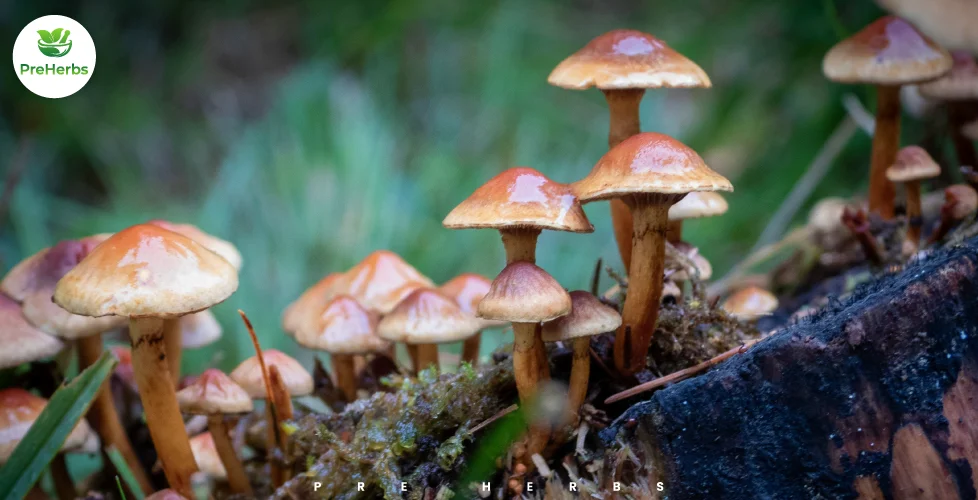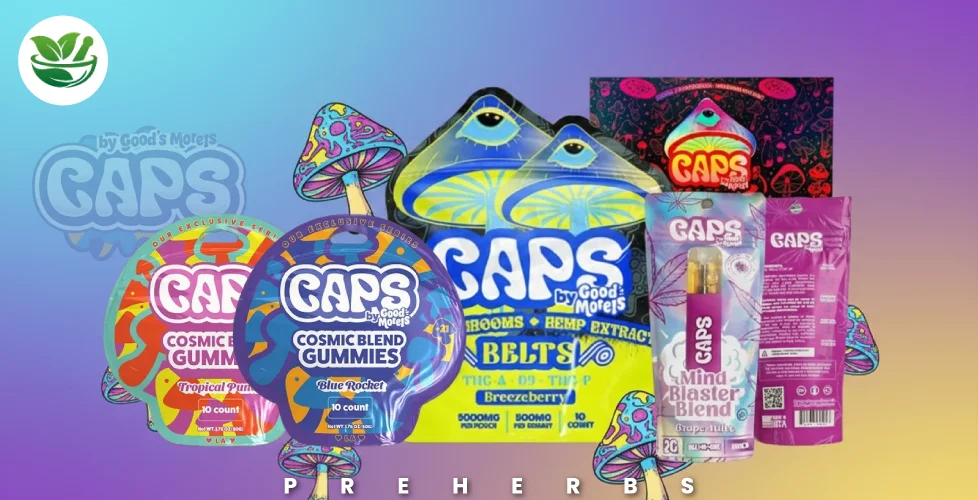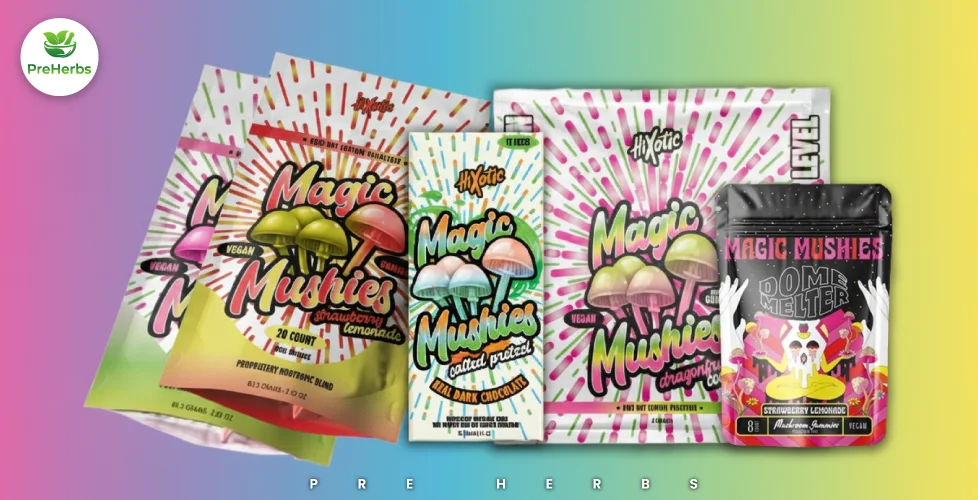Magic mushrooms — often called psilocybin mushrooms — have been creating a lot of buzz lately. Some people see them as powerful tools for healing, others as a way to explore creativity or spirituality, and for many, they’re simply a fascinating part of nature’s pharmacy. But what exactly are these mushrooms? How do they work, and why are scientists so interested in them today?
In this guide, we’ll walk through the benefits, risks, uses, and legal facts around magic mushrooms in a clear and balanced way — so whether you’re just curious or seriously considering their potential, you’ll leave with a solid understanding.
What Are Magic Mushrooms?
Magic mushrooms are a type of fungi that contain the hallucinogenic compound psilocybin, which the body converts into psilocin. Psilocin interacts with serotonin receptors in the brain, particularly the 5-HT2A receptor, resulting in altered perception, mood, and thought patterns.
There are over 180 species of mushrooms known to contain psilocybin, with Psilocybe cubensis and Psilocybe semilanceata being the most commonly used varieties. They are often consumed dried, brewed in teas, or combined with food for recreational or therapeutic use.
Read More: Different Types of Kratom: Benefits and Effects
Historical Use of Magic Mushrooms
Magic mushrooms have been used for thousands of years in spiritual, religious, and medicinal practices:
- Mesoamerican Cultures: Indigenous peoples in Mexico used psilocybin mushrooms in religious ceremonies to connect with the divine and for healing purposes. The Aztecs called them “teonanácatl,” meaning “flesh of the gods.”
- Shamanic Practices: In South America, shamans incorporated mushrooms into rituals to induce visions, spiritual experiences, and guidance from higher powers.
- Western Popularity: Magic mushrooms gained widespread attention in the 1950s and 60s, particularly in the counterculture movement, when researchers began studying their effects on the mind and consciousness.
How Magic Mushrooms Works
The primary active compound in magic mushrooms is psilocybin, which the body metabolizes into psilocin. Psilocin acts on the brain’s serotonin system, producing the following effects:
- Altered perception of time and space
- Visual and auditory hallucinations
- Enhanced emotional experiences
- Euphoria or intense joy
- Spiritual or mystical experiences
The effects usually begin 20–60 minutes after ingestion, peak within 2–3 hours, and gradually taper off over 4–6 hours, depending on dosage and individual metabolism.
What Are Edible Mushrooms?
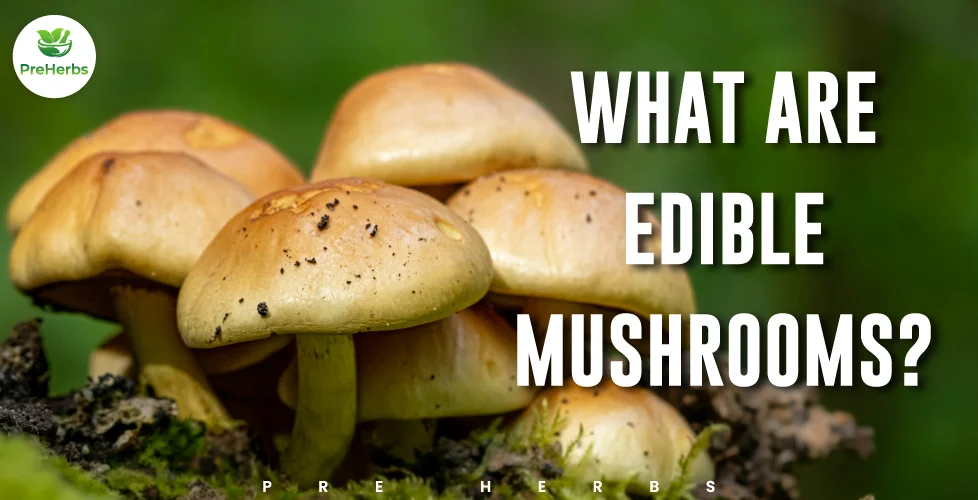
Not all mushrooms are about psychedelics — many are simply delicious and healthy additions to our everyday meals. Edible mushrooms are types of fungi that can be safely eaten, either cooked as food or used in supplements.
They come in all shapes and flavors, from common kitchen staples like button, shiitake, and portobello to wellness-focused varieties like reishi, lion’s mane, and chaga.
The main difference lies in their purpose:
- Culinary mushrooms are usually enjoyed for their taste, texture, and nutritional value.
- Medicinal or functional mushrooms are prized for their bioactive compounds, which may support health, immunity, or even brain function.
Read More: Health Benefits of Incorporating White Mushrooms into Your Diet
Types of Edible Mushrooms
Edible mushrooms come in a wide variety, each with unique flavors, textures, and health benefits. They are broadly divided into culinary mushrooms (mainly for food and taste) and medicinal/functional mushrooms (valued for their wellness properties).
Culinary Mushrooms (Commonly Used in Cooking)
- Button Mushroom (Agaricus bisporus) – The most popular worldwide, mild in flavor, rich in B vitamins.
- Portobello Mushroom – A mature form of the button mushroom, meaty texture, often used as a meat substitute.
- Cremini Mushroom – Baby portobellos, firmer texture, and stronger flavor than button mushrooms.
- Shiitake Mushroom – Known for its savory umami taste, often used in Asian cuisine, supports heart health.
- Maitake (Hen of the Woods) – Frilly mushroom with earthy flavor, linked to immune-boosting benefits.
- Oyster Mushroom – Mild, slightly sweet, commonly used in stir-fries and soups.
- Enoki Mushroom – Long, thin stems with tiny caps, crunchy texture, used in hot pots and salads.
Medicinal & Functional Mushrooms (Wellness-Oriented)
- Reishi (Ganoderma lucidum) – “Mushroom of immortality,” used for relaxation, stress relief, and immunity.
- Lion’s Mane (Hericium erinaceus) – Supports brain health, memory, and focus.
- Chaga (Inonotus obliquus) – Packed with antioxidants, boosts immunity and skin health.
- Cordyceps (Cordyceps militaris/sinensis) – Enhances stamina, energy, and respiratory health.
- Turkey Tail (Trametes versicolor) – Improves gut health and supports the immune system.
Popular Functional Mushrooms in Edible Products
- Reishi (Ganoderma lucidum): Known as the “mushroom of immortality,” used for relaxation and immune support.
- Lion’s Mane (Hericium erinaceus): Supports brain health, memory, and focus.
- Chaga (Inonotus obliquus): High in antioxidants; used for immunity and skin health.
- Cordyceps (Cordyceps militaris/sinensis): Boosts energy, stamina, and respiratory health.
- Turkey Tail (Trametes versicolor): Supports gut health and immunity.
- Shiitake & Maitake: Nutritious culinary mushrooms with cholesterol-lowering and immune-boosting compounds.
Benefits of Magic Mushrooms
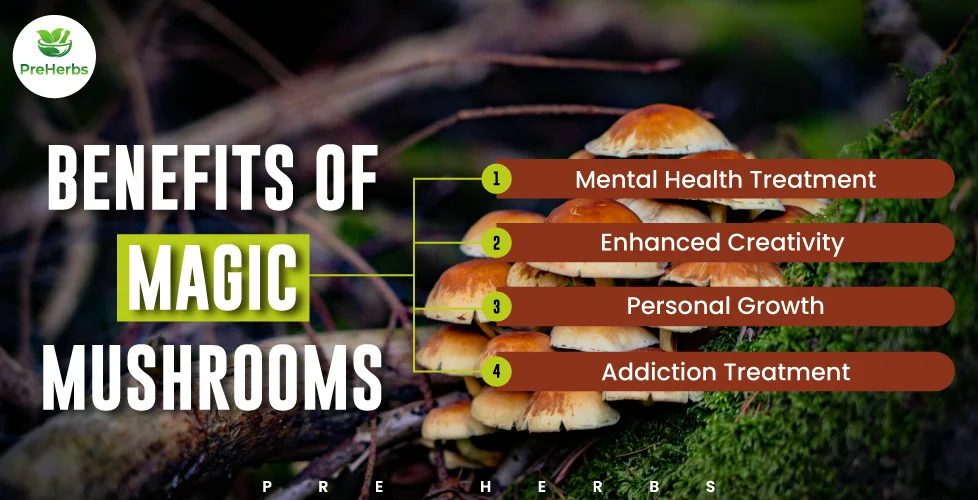
Recent scientific research has highlighted the potential benefits of magic mushrooms, particularly in mental health and wellness:
1. Mental Health Treatment
Studies suggest psilocybin may help treat conditions like:
- Depression: Clinical trials have shown psilocybin-assisted therapy can significantly reduce symptoms in patients with treatment-resistant depression.
- Anxiety: Psilocybin has been effective in reducing anxiety, particularly in terminally ill patients facing existential distress.
- PTSD: Early research indicates potential in alleviating post-traumatic stress disorder symptoms by helping patients process traumatic memories.
2. Enhanced Creativity and Cognitive Flexibility
Users often report increased creativity, problem-solving abilities, and novel thinking patterns. Psilocybin can promote cognitive flexibility, allowing individuals to approach challenges from new perspectives.
3. Spiritual and Personal Growth
Magic mushrooms have been used for centuries to induce mystical experiences. Users frequently describe a sense of unity, connectedness, and profound personal insight, which can support personal growth, self-reflection, and mindfulness.
4. Addiction Treatment
Preliminary research suggests psilocybin therapy may help individuals overcome addictions to substances like tobacco, alcohol, and opioids by breaking entrenched behavioral patterns and fostering new perspectives.
Read More: The Fascinating World of Porcini Mushrooms: Flavor, Nutrition, and Recipes
Common Uses of Magic Mushrooms
Magic mushrooms are used in several contexts, each with unique purposes:
| Use | Purpose | Explanation |
| Recreational | Enjoyment & altered reality | Taken for euphoria, visual effects, and heightened sensory experiences. |
| Therapeutic | Mental health treatment | Used in therapy for depression, anxiety, PTSD, and addiction recovery. |
| Spiritual | Mystical experiences | Helps in rituals or self-exploration to feel connected with nature or higher consciousness. |
| Personal Growth | Self-reflection & healing | Encourages mindfulness, new perspectives, and emotional release. |
| Creativity Boost | Cognitive flexibility | Enhances imagination, problem-solving, and fresh thinking. |
Risks and Side Effects of Magic Mushrooms
Despite their potential benefits, magic mushrooms are not without risks. Understanding these is crucial for safe use:
1. Psychological Risks
- Bad trips: Intense fear, paranoia, or anxiety may occur, especially in high doses or unfamiliar settings.
- Hallucinogen Persisting Perception Disorder (HPPD): Rarely, users may experience persistent visual disturbances after ingestion.
- Triggering mental health issues: Individuals with a history of schizophrenia, bipolar disorder, or severe anxiety may experience exacerbated symptoms.
2. Physical Side Effects
- Nausea or vomiting
- Dizziness or coordination problems
- Increased heart rate and blood pressure
3. Dosage and Contamination Risks
Improper dosing can result in severe, unwanted experiences. Wild-harvested mushrooms may also be toxic or misidentified, leading to poisoning.
Legal Status of Magic Mushrooms
The legal status of magic mushrooms varies worldwide and is often complex:
- United States: Psilocybin is classified as a Schedule I controlled substance federally, but some states and cities (e.g., Oregon, Denver, and Seattle) have decriminalized or legalized its therapeutic use.
- Canada: Psilocybin is illegal, though exemptions exist for medical and research purposes.
- Europe: Countries like the Netherlands allow the sale of psilocybin truffles, while others strictly prohibit all psilocybin products.
- Other Regions: Some South American countries tolerate traditional use in indigenous rituals, while most of Asia enforces strict bans.
It’s essential to understand local laws before possessing or consuming magic mushrooms, as penalties can be severe.
Safe Practices for Using Magic Mushrooms
If you consider using magic mushrooms, following safety guidelines is vital:
- Start with a Low Dose: Especially if you’re a beginner, start small to gauge your sensitivity.
- Choose a Safe Environment: A calm, familiar setting with supportive companions reduces the risk of negative experiences.
- Avoid Mixing with Other Substances: Alcohol or drugs can amplify unpredictable effects.
- Consider Mental Health: Avoid use if you have a personal or family history of severe psychiatric disorders.
- Know the Source: Only consume mushrooms that are properly identified or purchased from reputable sources.
Read More: How to Cook Mushrooms: A Beginners Guide to Selecting, Preparing, and Cooking Varieties
Future of Magic Mushrooms
Interest in psilocybin is growing rapidly in both scientific and public spheres. Potential future developments include:
- Expanded Medical Applications: Research is exploring psilocybin for Alzheimer’s, chronic pain, and OCD.
- Legal Reform: More countries and states are considering decriminalization or regulated therapeutic use.
- Integration into Mental Health Services: Professional psilocybin therapy may become more mainstream, with structured treatment protocols.
Where to Buy Magic Mushrooms
When it comes to magic mushrooms, quality and trust are everything. Choosing a reliable source ensures safety, authenticity, and a better overall experience. For those looking to explore with confidence, Great CBD Shop is a trusted place to find premium products. Start your journey the right way — safe, informed, and with peace of mind.
FAQ’s
Your most common questions about magic mushrooms.
1. What are the effects of magic mushrooms?
They can cause euphoria, visual and sensory distortions, deep introspection, and changes in perception of time and space.
2. How long will a mushroom high last?
A mushroom high typically lasts 4 to 6 hours, depending on the dose, body chemistry, and environment.
3. Are magic mushrooms safe?
They’re generally non-toxic, but risks include anxiety, paranoia, or triggering mental health issues if used improperly.
4. Can psychedelic mushrooms change your brain?
Yes, they can temporarily rewire brain connectivity and may create long-lasting positive changes in mood and perspective.
5. How to recover from mushroom edibles?
Stay hydrated, rest in a calm environment, and give your body time; effects usually fade within hours.
Final Thoughts
Magic mushrooms are a fascinating substance with a rich history, promising therapeutic potential, and significant cultural significance. While they offer benefits for mental health, creativity, spirituality, and addiction recovery, they also carry psychological and physical risks. Awareness of proper dosage, safe use practices, and local legal restrictions is essential for anyone considering magic mushrooms.As research continues to uncover their potential, magic mushrooms may become a revolutionary tool in mental health treatment, but responsible use and education remain paramount.

